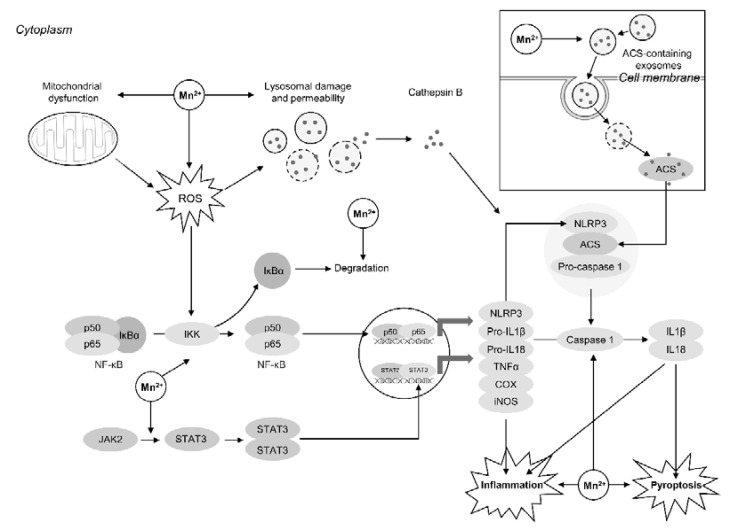Figure 1.
Neuroinflammatory effects of Mn exposure. NF-κB activation through a number of mechanisms plays a key role in proinflammatory effects of Mn [81]. Specifically, Mn overload significantly increased IkBα degradation ultimately resulting in NF-κB activation [82]. In addition, Mn-induced mitochondrial dysfunction and ROS overproduction also contributes to activation of redox-active NF-κB. Mn was also shown to activate JAK2/STAT3 pathway [83]. Both of these mechanisms may underlie Mn-induced proinflammatory cytokine overproduction. Recent studies have also clarified the particular role of NLRP3 inflammasome activation in Mn-induced neuroinflammation and pyroptosis. Activation of NLRP3 inflammasome under Mn exposure may result not only from NF-κB-induced NLRP3 expression, but also due to exosomal transport of ACS protein from other exposed cells [90]. Mn overexposure and oxidative stress provide significant damage to lysosomes with subsequent increase in membrane permeability and cathepsin B release. The latter also up-regulates NLRP3-inflammasome activation [91].

